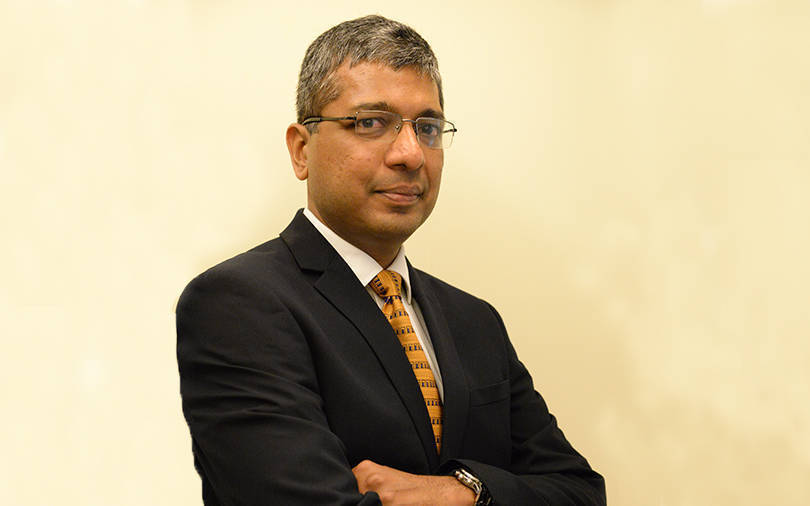
Qtek has an advantage in digital transformation services: CEO Anand Ramakrishnan


Anand Ramakrishnan, a former Wipro and HCL Infosystems executive, joined business services provider Quess Corp in July 2017 to start its information technology division. Qtek Systems, which offers infrastructure managed services, now employs close to 1,000 people and works with partners such as Hewlett Packard Enterprise, Oracle, McAfee and IBM.
Unlike companies such as Tata Communications and Sify Technologies, Qtek does not run data centres or build new tailored applications on top of the cloud. CEO Ramakrishnan talks to TechCircle on the growing cloud and data centre management business in India as enterprises move to cloud at a rapid pace. He also explains why he thinks the company is better placed than large IT firms in cornering digital transformation business. Edited excerpts:
What are the main lines of Qtek's business?

The company has three main areas of business: management of end-user computing and data centre, information security services and cloud services.
We do not establish or own data centres, as we follow an asset-light model. If the customer requires hosting requirements, we have partnerships with data centres. We also run our customers' data centres for them.
In the security business, we take care of the whole infrastructure including mobile device security, firewall management and application security. We do identity and access management and data protection. We have a partnership with McAfee for advanced monitoring and detection, which is a soft service, looking for any attacks or unusual activity.

In cloud services, we do the cloud-readiness assessment of applications before migration, then the cloud-migration services and cloud monitoring and operations like transferring workloads or shutting down.
How did the idea of a separate business division for managed IT services came about? Was it because of the staffing requirement in this particular area?
Not necessarily. Most of our staffing business is for large system integrators (SIs) and global in-house centres of large multinationals. The managed services are more with product companies, which don't necessarily do staffing. We don't see a merging of these two businesses.

We are careful also as the market segments are completely different and we try not to overlap the segments. We saw an opportunity where a lot of large companies want to exit and the smaller players are not organised. We have our network operation and security operation centres in Bengaluru. We manage customers remotely, onsite and via a hybrid model.
The SIs also do this work and you are probably up against the world's largest IT companies, many of whom are homegrown. But you are like a startup. How do you compete with them?
Yes, that is correct. I joined to start the division. The [Quess Corp] chairman Ajit Issac had the idea and wanted to make this strategic move. I would really like to see us becoming a full-fledged SI. We are on our route to do that.

There is a lot of scope for us to grow in India as there is a churn in the market. Some of the smaller players have disappeared as they could not do well. So we are well placed to exploit the opportunity that has opened up.
The areas we are in are fast moving, in terms of new technologies being adopted or new threats emerging every day in cybersecurity.
We are also working a lot in automation, some of which is internally developed technologies. And it is going to be our focus for the next year or so.

How do you differentiate from SIs or other players offering digital transformation?
Our advantage is that we don't have the baggage of running an IT services company. Any company is as good as its people. And our backbone is staffing or hiring good people.
The industry is transforming and enterprises are willing to look at new solution providers who can bring a lot of automation in digitisation rather than do it the traditional way. We have a large customer base at Quess and our ability to leverage that is something we are focussed on. We are always cross-leveraging and cross-selling.

The other challenge as a business for us is to find new solutions because a lot of our competitors do something similar. Players who focus on the US and European markets have a different cost structure. So they struggle to make money in India. They have higher overhead costs. We are an India-focussed organisation and, hence, our overheads are competitive and our services are cheaper. We move fast and are constantly bringing new solutions. For example, we have a focus on mobile threat detection.
With almost 1,000 people, you are not very agile or nimble, right?
From a structural perspective, we don't have many layers that inhibit the agility. Within limits, we have empowered our mid-level and senior-level people to make decisions.
Quess itself is nimble and embraces newer technologies fast. The large enterprises, in general, are waking up to the fact that anybody could be under threat. Earlier, only the financial services industry saw a threat. Now, everyone sees security as a crucial piece.
A lot of large tech companies have established local data centres and, hence, there is a push to move to the cloud more rapidly.
